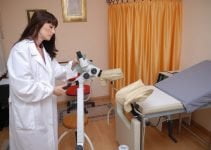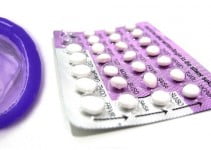Are you thinking of using a birth control pill? There are actually different types available. Each has its own pros and cons. The information below will highlight the different types of birth control pills and how they work.
First of all, you should know that around 7% of the females who take the pill get pregnant each year unintentionally [1]. In most cases, they don’t remember to take the pills.
However, that percentage would change if the pill was used perfectly at the same time every day, as only one out of every one hundred have an unplanned pregnancy in the first year of taking the pill.
Types of Birth Control Pills and How They Work
Birth control pills are available in two main types: combination pills and progestin-only pills. The majority come in 21-day or 28-day packs. The pills are usually classified by the amount of estrogen hormone and/or the type and amount of progestin hormone.
Combination Pills
Most of the birth control pills are the combination type. These contain progestin and estrogen hormones. Again, once they are used correctly, they can be equally effective at protecting you against pregnancy. In addition, they might offer other benefits [2] such as:
- Helping to make your periods less painful, more regular, lighter, and shorter
- Improving the pain and bleeding associated with fibroids and endometriosis
- Reducing the frequency or severity of menstrual migraines
- Lowering the risk of uterine cancer, ovarian cancer, and pelvic inflammatory disease
- Helping to improve acne
- Improving bone density during the years before menopause
Combination pills will slightly increase your risk of having a stroke, heart attack, and blood clots that begin in a leg vein and travel to various other areas of the body and become deadly.
If you are a smoker who is older than thirty-five, you should not use any form of combination birth control pill. Some other factors, including obesity or a history of heart disease in the family, will cause you to have those clots.
Progestin-Only Pills
These are called mini-pills, and they are used most commonly by females with pre-existing risks for having blood clots, nursing mothers, or those with other conditions that prevent them from using estrogen [3]. They might not work if you are not taking them daily and at the same time.
This type of birth control pill will work for nursing mothers, as continuous breastfeeding is already protecting them against pregnancy. The mini pill will basically provide added security.
It’s important to note that the efficacy of the mini pill might be too low in females with normal fertility [4].
Another type of birth control pill is a continuous or extended cycle. When taking these pills, you can expect to have fewer periods or none at all.
Like most women, you might be wondering if it is healthy and safe to skip periods. In this case, you should know it is necessary for a woman to have a menstrual period after ovulating to shed the built-up uterus lining when she is not taking oral contraceptives.
All birth control pills, regardless of the cycle length, will stop ovulation and prevent the thickening of the uterus lining. Nothing will be there to shed. This means that there could be several planned bleeding days on most pills, but it’s not actually a menstrual period.
This bleeding is often referred to as menstruation by most women, but it is really withdrawal bleeding in the case of pills. In this instance, it is not a problem if you are bleeding less often when taking hormonal birth control. The pills with longer cycles will cause this withdrawal to happen less frequently, and most doctors recommend it to patients.
When you start taking the pill, you should be careful about using other over-the-counter and prescription drugs. Medications such as antibiotics, St. John’s Wort, as well as certain HIV and seizure medications, could interfere with the pill [5].
How Birth Control Pills Work
Birth control pills work through several mechanisms to prevent pregnancy, but primarily by stopping ovulation. You cannot get pregnant if an egg is not released, so there will nothing for a sperm to fertilize. As mentioned above, most birth control pills have progestin and estrogen hormones, which are two forms of synthetic female hormones.
These synthetic hormones work to stabilize the natural hormone levels and stop estrogen from increasing mid-cycle. If there is no increase in estrogen, the pituitary gland will not release luteinizing hormone (LH) that would normally trigger the ovaries to discharge mature eggs.
Birth control pills also thicken the cervical mucus that makes it difficult for sperm to reach the egg. They also make it difficult for an egg to attach to the uterine wall [6].
Pill Safety
Every woman is different so the experiences with the different types of birth control pills will not be the same. You could experience side effects such as weight gain, breast tenderness, nausea, and spotting or light bleeding between periods.
The spotting might be more common in the pills, which contain higher doses of estrogen and cycles with larger amounts of active pills [7].
Bear in mind that the unwanted side effects often go away over time, so if you are experiencing any, your doctor might suggest that you use a certain type of pill for 3 to 6 months without quitting.
References
- https://www.ncbi.nlm.nih.gov/pmc/articles/PMC3638209/
- https://www.ncbi.nlm.nih.gov/pubmed/11727171
- https://www.uptodate.com/contents/progestin-only-pills-pops-for-contraception
- https://www.nhs.uk/conditions/contraception/the-pill-progestogen-only/
- https://www.fsrh.org/standards-and-guidance/documents/ceu-clinical-guidance-drug-interactions-with-hormonal/
- https://www.ncbi.nlm.nih.gov/pmc/articles/PMC4827491/
- https://onlinedoctor.superdrug.com/contraceptive-pill-side-effects.html



